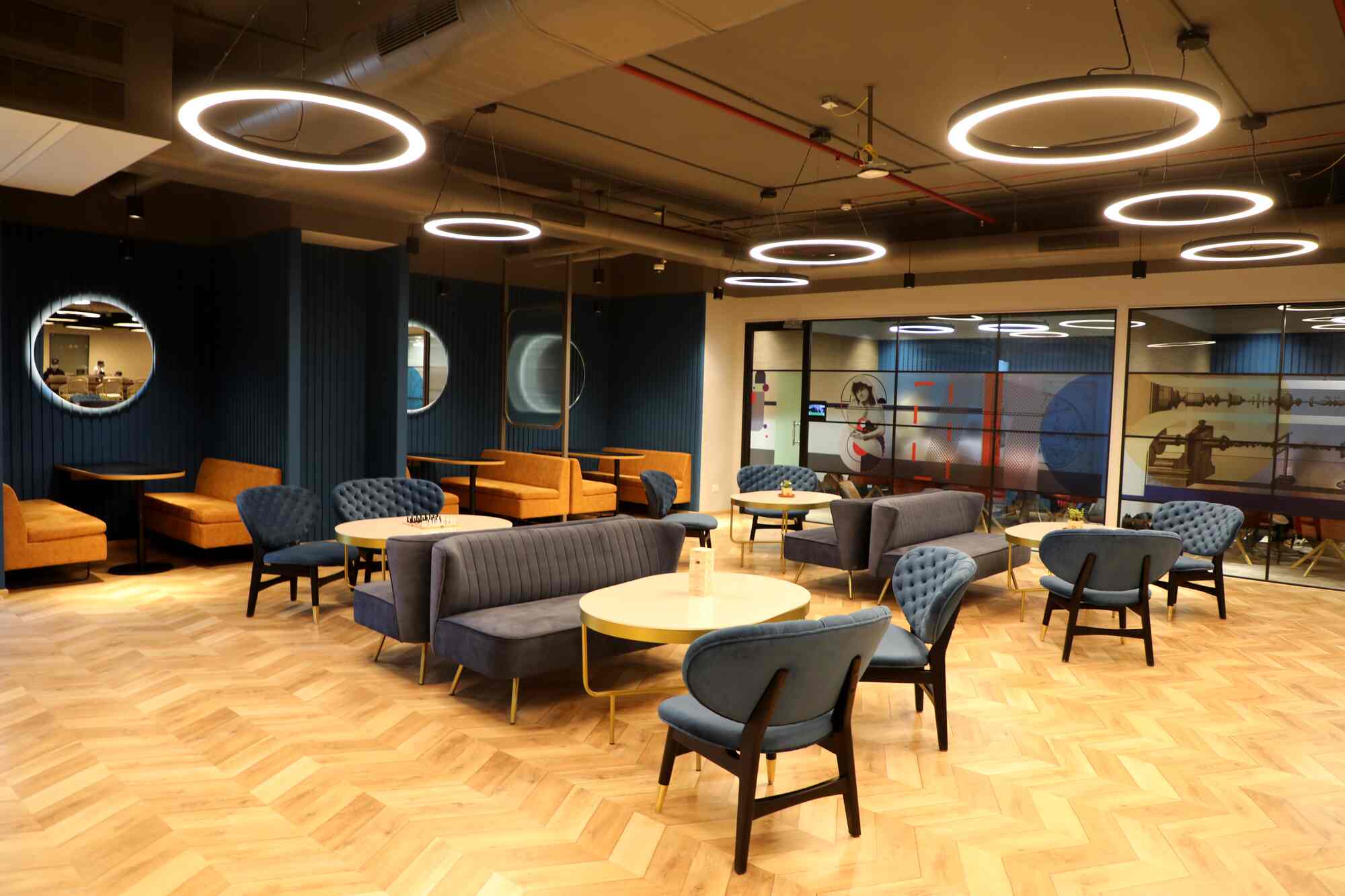Understanding the Sweden Co-Working Space Market: A Segmentation by Business Type – Conventional, Professional, and Other Co-working Models

Strong 8k brings an ultra-HD IPTV experience to your living room and your pocket.
Introduction
The Sweden Co-Working Space Market has experienced significant transformation over the past decade. Fueled by changing work cultures, rapid urbanization, the digital economy, and a growing freelance and startup ecosystem, co-working has become a mainstream choice for a wide range of businesses. As this market matures, it becomes essential to understand its structure by breaking it down into the core categories of co-working environments: Conventional, Professional, and Other Co-working Spaces. This segmentation helps stakeholders—investors, operators, entrepreneurs, and policymakers—understand the unique offerings, customer profiles, and strategic positioning within the market.
1. Conventional Co-working Spaces: Community-Centric Hubs for Startups and Freelancers
Definition and Characteristics
Conventional co-working spaces form the foundation of the co-working movement. These spaces are designed primarily with flexibility, affordability, and community in mind. They cater to a broad range of users, including freelancers, digital nomads, small startups, and creative professionals.
Key characteristics include:
• Open-plan layouts that promote collaboration.
• Flexible membership options such as hot desks, dedicated desks, and part-time access.
• Community events, networking opportunities, and informal learning workshops.
• A casual and welcoming environment with minimal entry barriers.
Market Position in Sweden
In Sweden, conventional co-working spaces are prevalent in major cities like Stockholm, Gothenburg, and Malmö. These urban centers have dense clusters of startups and creative professionals who benefit from affordable, well-located workspaces that offer networking potential and community engagement. Operators like The Park, Impact Hub Stockholm, and Workaround exemplify this segment. These spaces are often less formal but highly dynamic, focusing on energy, innovation, and shared growth.
Target Audience
• Solo entrepreneurs and early-stage startups.
• Freelancers in fields like graphic design, software development, and content creation.
• Remote workers seeking a social alternative to working from home.
Challenges and Opportunities
The main challenge for this segment is ensuring long-term member retention, as users may transition to more structured environments as their business grows. However, conventional spaces play a crucial role in early-stage business development and can act as feeders into more professional co-working environments.
2. Professional Co-working Spaces: Structured Solutions for Growing Businesses and Corporates
Definition and Characteristics
Professional co-working spaces cater to businesses that require more than just a desk and internet. These spaces offer advanced infrastructure, privacy options, and premium services. They blend the flexibility of co-working with the structure and amenities of traditional office environments.
Key features include:
• Private offices and meeting rooms with enhanced soundproofing and security.
• Corporate-grade internet, IT support, and concierge services.
• Professional ambiance with formal business decor and regulated access.
• Scalable space options for small to mid-sized teams and satellite offices.
Market Position in Sweden
The professional co-working segment is growing rapidly in Sweden as SMEs and larger enterprises adopt hybrid work models. Companies seek to reduce real estate overheads while maintaining a physical presence in strategic locations. Providers like United Spaces, Convendum, and Regus operate in this space, offering a sophisticated alternative to long-term office leases.
The demand is particularly high in Stockholm’s business districts, where companies want premium addresses and ready-to-use facilities without the hassle of managing property or logistics.
Target Audience
• Scale-ups that have outgrown conventional co-working setups.
• SMEs looking for short-to-medium-term office solutions.
• Corporations seeking satellite or project-specific teams to operate flexibly.
Challenges and Opportunities
A primary challenge for this segment is maintaining a balance between flexibility and exclusivity. The higher cost of professional spaces necessitates consistent value delivery. However, the opportunity to attract long-term, high-value clients is significant, especially as hybrid work becomes institutionalized.
3. Other Co-working Spaces: Niche, Industry-Specific, and Hybrid Models
Definition and Characteristics
This category encompasses all alternative co-working formats that don’t fit neatly into the conventional or professional categories. These include:
• Niche co-working spaces designed for specific industries, such as health tech, media, or legal professionals.
• Incubators and accelerators that combine co-working with mentorship and funding.
• Public or university-backed co-working spaces supporting innovation and research.
• Hybrid models integrating retail, hospitality, or wellness services.
Market Position in Sweden
Sweden's strong innovation culture has paved the way for unique co-working concepts. For instance, THINGS Stockholm specializes in hardware-focused startups, while H2 Health Hub supports health tech ventures. University-linked spaces like those associated with KTH Royal Institute of Technology offer research-driven environments. These models support Sweden’s position as a hub for sustainable and tech-forward innovation.
Such spaces are often backed by government initiatives, industry partnerships, or larger corporate sponsors aiming to support ecosystems rather than generate direct profit. They are especially vital in smaller cities or regions looking to stimulate entrepreneurship and knowledge exchange.
Target Audience
• Startups operating in specific sectors needing domain-relevant support.
• Academic entrepreneurs and researchers.
• NGOs, social enterprises, or mission-driven businesses seeking aligned communities.
Challenges and Opportunities
While these spaces serve niche markets, they often face challenges around scale and monetization. Their specialized focus limits general appeal, but their value proposition lies in offering tailored resources, mentorship, and networking relevant to specific industries. Opportunities exist for collaboration with universities, municipalities, and corporates aiming to promote innovation ecosystems.
Conclusion: Strategic Insights from Market Segmentation
Segmenting the Sweden co-working space market into Conventional, Professional, and Other categories provide a strategic lens to understand the landscape and guide investment, development, and policy decisions. Each segment serves distinct user profiles with different expectations, infrastructure requirements, and value propositions.
• Conventional spaces prioritize community and affordability, making them the first touchpoint for many entrepreneurs and freelancers.
• Professional spaces respond to the increasing demand for flexible yet structured environments suitable for scaling businesses and corporate teams.
• Other co-working models add diversity and depth to the market, supporting innovation, sector-specific growth, and cross-industry collaboration.
As Sweden continues to evolve as a leader in innovation and sustainability, the co-working space market will likely see continued diversification. Hybrid work, digital entrepreneurship, and flexible infrastructure demand will remain key trends influencing the future of this market. Stakeholders who understand the nuances of each segment can better position themselves to serve Sweden’s dynamic workforce.
Note: IndiBlogHub features both user-submitted and editorial content. We do not verify third-party contributions. Read our Disclaimer and Privacy Policyfor details.


